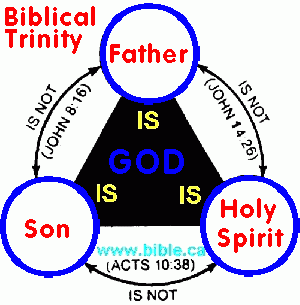
(The Areopagus as viewed from the Acropolis, courtesy Wikipedia)
By Spencer D Gear PhD
Why would a group of Christians want apologetics and theology be seen as parallel disciplines. I challenged this combination of ‘Apologetics & Theology’ on Christian Forums.net (CFnet). They are in some ways related but in other primary ways are different disciplines? The following enumerates how I pursued this encounter with the moderators of this forum.
What is ‘apologetics’? William Lane Craig defines apologetics as ‘a theoretical discipline that tries to answer the question, What rational defense can be given for the Christian faith? Therefore, most of our time must be spent in trying to answer this question…. The use of apologetics in practice ought rather to be an integral part of courses and books on evangelism’ (Craig 1994:xi).
Edward John Carnell integrates apologetics with theology: ‘Apologetics is that branch of Christian theology which answers the question, Is Christianity rationally defensible?’ (Carnell 1948:7, emphasis in original). Norman Geisler, an active apologist, exegete and theologian, provided this definition: ‘Apologetics is the discipline that deals with a rational defense of Christian faith’ (Geisler 1999:37, emphasis in original).
How is ‘theology’ defined? Theologian Henry Thiessen considers that ‘theology is used in the narrow sense of ‘the doctrine of God’ and ‘the broad and more usual sense …, all Christian doctrines, not only the specific doctrine of God, but also all the doctrines that deal with the relations God sustains to the universe’ (Thiessen 1949:24).
A more recent theologian stated that ‘systematic theology is any study that answers the question, “What does the whole Bible teach us today?” about any given topic’ (Grudem 1999:17, emphasis in original). Millard Erickson defines theology as ‘that discipline which strives to give a coherent statement of the doctrines of the Christian faith, based primarily upon the Scriptures, placed in the context of culture in general, worded in a contemporary idiom, and related to issues of life’ (Erickson 1985:21).
I suggested to one of the moderators of CFnet that ‘Apologetics’ should become a separate discipline to ‘Theology’ on that forum and he suggested discussing it in an open forum of ‘Questions & Suggestions for CFnet Staff’. Therefore, I began a topic, ‘Separate apologetics from theology’.
That really got the juices flowing after I began the topic with this entry:[1]
No need to quote Scriptures in apologetics
Since I’m an active Christian apologist in the Australian secular world, I would like to ask a few questions about the ‘Apologetics & Theology’ directory in which Scriptures are to be given in responses, to follow CFnet guidelines. This is not possible in the apologetic world in which I engage people because these sceptical Aussies do not want Scripture quoted as many of them don’t believe the Bible. They want engagement at a different level because of the nature of their questions or comments:
- ‘Your Bible is nonsense; it’s nothing more than a fairytale, myth from the Iron Age’ – quoting Scripture will not answer this issue. I need to engage with them on how to determine the accuracy and dependability of any document from history. Quoting Scripture doesn’t help them on this part of the journey.
- ‘It’s foolishness trying to convince me of your god when there are so many gods in the world, including Allah, Buddha and thousands of other deities. Promoting your one God is nothing more than giving me your indoctrination’. This means I have to begin this discussion way before reaching the Bible.
- The occasional more informed person raises issues such as: ‘Your Reformation hero John Calvin agreed to the slaughter of the Geneva Reformer Michael Servetus who was burned to death for heresy. One of your leaders is as guilty as the ISIL terrorists in killing those who oppose them’. Therefore, this is not the point to begin by quoting Scripture. I have to begin way back before I can come to Scripture.
I would like to encourage CFnet to separate apologetics from theology and not to require the quoting of Scriptures for every post that starts or continues an apologetic topic. Even in theology there are topics that may encourage starting or continuing with a discussion that doesn’t directly cite Scripture at the beginning. I’m thinking of the way that postmodernism is influencing theology. A refutation of postmodern theology (which Millard Erickson has done magnificently in the latest edition of his Christian Theology) may not involve the quoting of Scripture in various aspects as responses.
I urge you to broaden your view of Apologetics so that you can equip believers to engage with the secularist who is raising strategic issues that need to be addressed by the Christian community. A requirement to quote Scripture is not always the best starting point when we are finding common ground. If we do this, CFnet can be more actively involved in equipping apologists for the challenges of the secular world.
I do hope you will give positive consideration to these matters I’m raising here.
Here is a sample of responses:
Change it to ‘Christian apologetics’
One of the administrators wrote:[2]
We have actually discussed this a bit among ourselves. One thought has been that maybe we should change the title of the forum to “Christian Apologetics and Theology” rather than “Apologetics and Theology.” Adding “Christian” to the title might be more accurate because the rules here at CFnet do not allow non-Christians to attempt to undermine our beliefs therefore, using the Bible as the source of our defense is appropriate. Very few non-Christians debate in this forum and I suspect this is partly why.
Mars Hill as an example
(Engraved plaque containing Apostle Paul‘s Areopagus sermon, courtesy Wikipedia)
Another quoted from the gotquestions.org website:[3]
The biblical significance of Mars Hill is that it is the location of one of Paul’s most important gospel presentations at the time of his visit to Athens during his second missionary journey (Acts 17:16–34). It was where he addressed the religious idolatry of the Greeks who even had an altar to the “Unknown God.” It was this altar and their religious idolatry that Paul used as a starting point in proclaiming to them the one true God and how they could be reconciled to Him. Paul’s sermon is a classic example of a gospel presentation that begins where the listeners are and then presents the gospel message in a logical and biblical fashion. In many ways it is a classic example of apologetics in action. Paul started his message by addressing the false beliefs of those gathered there that day and then used those beliefs as a way of presenting the gospel message to them.[4]
This is well said.[5] We can expect that what Paul said on the Areopagus to the people of Athens is not detailed in full in Acts 17:22-34 (ESV), however there is enough here to indicate that he started with common ground:
- He ‘observed the objects of your worship’ (v 23);
- ‘I found also an altar with this inscription, “To the unknown god”‘ (v 23);
- Then he moved to the known ‘God who made the world and everything in it’, etc.
This is the kind of passage with emphases what we face in post-Christian societies where we have to deal with non-Christian issues that people use as blocks to consider Christ. I am convinced that we need to clear the debris before we get to the Gospel presentation. Paul did that on the Areopagus.
Please don’t remove the Scriptures
Another moderator:[6]
One thing I wouldn’t want to see is any removal of the scripture requirement from the guidelines of the forum that we have now. Even though this has created a lot of editing work and drawn terrible fire from some members against the mods (yours truly in particular lately!
), it has also done a lot to stop the horrible fighting and verbal abuse that had been taking place there at one time. To me it’s worth the time and effort, so perhaps there are some ways we can make it even better now.
For me, the issue is not that of removing the Scripture in a discussion. It is a matter of separating the topics of two separate disciplines. At times on this forum,[7] I do not see the rules facilitating the ministry of apologetics when there is a mix and mash with theology. We can have people squabbling over Arminian vs Calvinistic views of election and another thread dealing with the existence of God – all in the same directory.
I’m of the view that having a separate apologetics directory would allow specifics of apologetic topics to be pursued with vigor and focus. Then the controversy of Arminianism vs Calvinism could be placed in another directory that has nothing to do with apologetic topics – a theology directory.
What is apologetics?
Steven B Cowan is the general editor of Five Views on Apologetics (Zondervan Publishing House 2000). In his introduction to this book, he wrote on ‘the nature of apologetics’:
‘Apologetics is concerned with the defense of the Christian faith against charges of falsehood, inconsistency, or credulity. Indeed, the very word apologetics is derived from the Greek apologia, which means “defense.” It was a term used in the courts of law in the ancient world. Socrates, for example, gave his famous “apology,” or defense, before the court of Athens. And the apostle Paul defended himself (apologeomai) before the Roman officials (Acts 24:10; 25:8). As it concerns the Christian faith, then, apologetics has to do with defending, or making a case for, the truth of the Christian faith. It is an intellectual discipline that is usually said to serve at least two purposes: (1) to bolster the faith of Christian believers, and (2) to aid in the task of evangelism. Apologists seek to accomplish these goals in two distinct way s. One is by refuting objections to the Christian faith, such as the problem of evil or the charge that key Christian doctrines (e.g., the Trinity, incarnation, etc.) are incoherent. This apologetic task can be called negative or defensive apologetics. The second, perhaps complementary, way apologists fulfill their purposes is by offering positive reasons for Christian faith. The latter, called positive or offensive apologetics, often takes the form of arguments for God’s existence or for the resurrection and deity of Christ but are by no means limited to these. Of course, some apologists, as we will see, contend that such arguments are unnecessary or perhaps even detrimental to Christian faith. These apologists focus primarily on the negative task and downplay the role of positive apologetics. Nevertheless, most, if not all, would agree that the apologetic task includes the giving of some positive reasons for faith’ (Cowan 2000:8).
That is an especially useful format for a book on apologetics. It provides expositions on 5 different methods:
- The Classical Method, William Lane Craig;
- The Evidential Method, Gary R Habermas;
- The Cumulative Case Method, Paul D. Feinberg;
- The Presuppositional Method, John M. Frame; and
- The Reformed Epistemological Method, Kelly James Clark.
I enjoy this format because following the exposition of each method, the other 4 apologists provide their responses.
Ravi Zacharias and Norman Geisler have edited a very practical volume to address issues at the local church level, Is Your Church Ready? Motivating Leaders to Live an Apologetic Life (Zacharias & Geisler 2003).
Apologetics for reaching non-Christians
One moderator was onside with me in this kind of comment:
Since apologetics is mainly for reaching non-Christians and is quite different than mere theological discussion, it makes sense to have the two as separate forums. Even Other Religions and the Science forums could be grouped under an Apologetics forum. The point being that while apologetics does make use of theology, it also makes extensive use of philosophy and other disciplines to make a good and proper defense of the Christian faith. As such, not all of it can necessarily be directly supported by Scripture.[8]
This moderator explained further that, even though apologetics is grounded in Scripture, there are apologetic arguments that use philosophy and extrapolations from Scripture. For this kind of defense, using direct statements from Scripture is not necessary or advantageous. When unbelievers dismiss the Bible outright – not caring what Scripture says – we can appeal to their reason to demonstrate how their arguments are weak and don’t work. This is designed to gain their ears. With other discussions there may be situations where we use Scripture extensively. This is especially so with those from other faiths and the cults. He reinforced my view that with theology, it is generally a discussion among Christians where it is necessary to use Scripture. His view was that apologetics defends our theology but goes beyond it because of apologetics’ outward focus.[9]
My issue[10] relates to the discipline of apologetics and how one interacts with non-Christians who ask penetrating questions for which the initial point of contact is not for an answer from Scripture. I have a very high doctrine of Scripture, so the issue is the nature of apologetics. People ask me these kinds of questions or assert these kinds of things:
- Who created God?
- Why your God and not Allah?
- That Bible of yours is from the Iron Age and is nothing more than a fairytale.
For these kinds of questions, I do not start with the Scripture, but I eventually get to the Scriptures and their reliability.
My challenge to one of the forum moderators was: Please help me to understand how you will use an apologetic response, with your requirement for quoting Scripture, to answer the statement from a non-believer, ‘Your Bible is junk. It’s from the Iron Ages and is a fairytale. You can’t rely on anything in the Bible’.[11]
Here is one of the issues in a secular society:[12] I invite you to come Down Under and begin discussions on biblical topics on one of the commons in the centre of the city or go to any university campus and you’ll find that there are many non-believers who are biblically naive and ignorant of the Scriptures, but they have significant antagonism towards religion and especially the Christian faith.
Apologetics is not theology
(Acropolis of Athens view from Areopagus hill, courtesy Wikipedia)
The issue I raised on this forum[13] was the difference between apologetics and theology. They are two separate disciplines. Apologia is Greek for a defense; in this circumstance it is a defence of the Christian faith. However, many people in Australia and other parts of the world are a long way from discussing Scripture and as a proactive apologist in my country, I find I have to start way before citing Scripture – like Paul did on the Areopagus, recorded in Acts 17:22-34 (ESV). But CFnet in its current format won’t allow me to do that because of the requirement to quote Scripture.
I also have a very high view of Scripture from Genesis to Revelation. I’m not debating the authority of Scripture. My discussion surrounds the differences between the ministry of apologetics and the ministry of theological explanation. I’m suggesting that Apologetics becomes a separate directory from Theology and that there not be a requirement placed on those in the Apologetics directory to cite Scripture always.
I asked a moderator: How would you answer the question, ‘Who made God?’, when discussing with a non-Christian who raises this topic.
I understand the Lord is affirming an approach that seems to be foreign with verses such as:[14]
- Isa 1:18 (ESV): ‘Come now, let us reason together, says the Lord: though your sins are like scarlet, they shall be as white as snow; though they are red like crimson, they shall become like wool’.
- Eph 4:23 (ESV): ‘to be renewed in the spirit of your minds‘.
However, my experience with evangelicals through over 50 years as an evangelical Christian is that reason seems to be forbidden fruit with some evangelicals.
I expect[15] that apologetic questions should go in an Apologetics forum and not in ‘Questions for Christians‘. The issue could be easily addressed with a separate Apologetics forum, but with strict requirements for posting (flaming/goading is prohibited), but there is no requirement to quote Scripture. If I were to interact in an Apologetics forum, I would eventually get to Scripture because I’m convinced that the Christian world and life view fits like a hand in glove with reality.
Therefore, I’m suggesting establishing:
- A separate Apologetics forum;
- That deals only with apologetics topics and not inclusive of theological topics;
- A separate Theology forum;
- Maintain strict requirements for manners and etiquette in how people interact. I would not use the word ‘guidelines’ but would make them ‘requirements’.
I would expect that ‘Questions for Christians’ could include some apologetic type questions, but its breadth of questions would be much wider than apologetics.
Rules and legalism are not Christian
In the above kind of discussion, it wasn’t long before this kind of comment arrived: ‘More rules, more legalism, less Christianity. Doesn’t sound like a Christian forum to me’.[16] That is not what I’ve been advocating but it is how he is interpreting the moderators’ responses.
I replied:[17]
All conversations need rules. It’s not legalism, but a requirement for healthy dialogue. I can’t and wouldn’t use bullying tactics of swearing at a fellow employee on the job. I have boundaries for conversation at work and at church. On this forum, it should be no different.
Imagine what it would be like if there were not fundamental rules for the playing of football, tennis, cricket and baseball. I have to abide by the rules of driving on Australian roads, for obtaining a driver’s license and then the speed and boundaries of driving on the road.
‘More rules’ do not necessarily lead to ‘more legalism’. Rules are at the core of Christianity. John 14:6 (ESV) and Acts 4:12 (ESV) could be defined as ‘more rules, more legalism’ but it is core Christianity. There are some very definite rules in the Sermon on the Mount (Matt 5-7).
It is most definitely a Christian forum if rules are required because boundaries (rules) are necessary for disciplined Christian living, an example being, ‘If anyone thinks he is religious and does not bridle his tongue, but deceives his heart, this person’s religion is worthless’ (James 1:26 ESV). So the legalism of bridling the tongue is a demonstration of religion that is worthwhile before God.
His retort was: ‘You might find yourself in a forum all by yourself’.[18] He has obviously missed the point of my discussion in raising and continuing with this topic.
So, apologetics is really evangelism?
This is how one person viewed this topic of apologetics:
Perhaps I’m incorrect here, but Apologetics, imo, is believers defending their beliefs and differing ideas in a theological discussion using the Bible to “prove” their point.
Evangelism is what comes to mind for me when I read the OP [original post], this is dealing with non believers, witnessing to them and talking to them about our faith. Instead of changing A&T [Apologetics & Theology], perhaps an Evangelism section would be better suited, this way we all learn how to approach those non-believers when they ask questions similar to those presented in the OP.[19]
My response was:[20] Since I live in a very secular, post-Christian country, I find that sharing the Gospel will lead almost immediately into non-Christian challenges that can be quite inflammatory at times, like:
- ‘That’s garbage (and followed by a string of expletives)’;
- Myth! Trash! Nonsense!
- Science has proven your creation myth to be to be just that – myth – that is found in many of the stories of mythology.
If you were here, I wonder what kind of response you would get by using the Bible to prove your points. These antagonists do not believe the Bible and my experience tells me that quoting it won’t engage them in conversation.
This afternoon I travel by train to the inner city Town Hall for a meeting of The Gospel Coalition. I’ll engage the person beside me on the train in conversation and I’ll try to get onto a Christian topic, but I don’t plan on engaging that person by quoting the Bible. They are way back further than that in initial contact.
No need for quoting Scripture in apologetics
 One administrator was persistent: ‘So if I understand you correctly, by applying the guidelines the way we have, you are saying we have eliminated apologetics from the A&T [Apologetics & Theology] forum to the point that it is now just a theology thread’.[21]
One administrator was persistent: ‘So if I understand you correctly, by applying the guidelines the way we have, you are saying we have eliminated apologetics from the A&T [Apologetics & Theology] forum to the point that it is now just a theology thread’.[21]
How should I respond?[22] That is the case, generally, where I live. By requiring me to address apologetics topics on CFnet by insisting on the quoting of Scripture, we have moved into theology when I would like to deal with apologetics with resistant or antagonistic people. You and I know that it will take a compulsory ministry of the Holy Spirit to change a person’s heart.
I agree with the application of rules but it is the requirement or guideline to use Scripture that I find unnecessary in finding common ground with post-Christian secularists.
For example, some non-Christians and even Christians on CFnet use logical fallacies in their responses. I find it necessary to show what the fallacy is and how they use it by linking to a logical fallacies’ site, but to do this does not need a Scripture reference.
Another moderator who said she did not have much education and was intimidated by members who were smarter than she was,[23] told us how fed up she was: ‘I really do not understand why there are 4 pages here of some one trying every avenue possible to not want to use scripture in a Christian forum…in the only forum on the site that requires them’.[24]
This was like a red rag to a bull to me.[25] You have misread what I’ve written. I am NOT promoting the view NOT to use Scripture in a Christian forum. I’m addressing the ministry of apologetics which deals with objections to the Christian faith. To begin or continue an apologetic discussion with somebody objecting to some dimension of Christianity, it often is not helpful to begin with a ‘thus says the Bible’ answer. I’ve given a good number of examples in this thread to demonstrate that some objections to the faith do not require us to start with the Bible. Please go back through this thread to see the specific examples I have given.
I do not appreciate it when you misrepresent what I said. I am most definitely NOT advocating the elimination of Scripture in a Christian forum. I’m advocating that Apologetics is a separate discipline to Theology and that Apologetics needs to be more open. It does not need a requirement or suggestion to always use Scripture.
By the way, I have a very high view of Scripture and quote Scripture often in the forums on which I participate on CFnet. The issue is Apologetics and not needing to always quote Scripture.
Apologetics and theology differ
At least one moderator got the emphasis I was trying to convey. However, he lives in Canada, a country with a similar secular environment to Australia. He wrote:
The two main issues are these, as have been stated several times in this thread:
1. Apologetics and theology are two different subjects, and both are fairly large subjects at that. They should never really have been made into one forum in the first place. Having a separate Apologetics forum would allow for arguments to defend the faith to be gathered in one place, and therefore be effective in helping train those who are interested in defending the faith.
2. Not all apologetic arguments rely directly on Scripture. Defending traditional marriage and the sanctity of human life can be based on both arguments from Scripture and arguments not at all based on Scripture; the problem of evil is largely argued without Scripture; some of the arguments for the existence of God are not base[d] on Scripture; etc. Not to mention the fact that many non-Christians dismiss the Bible and won’t listen if one only tries to argue from Scripture. That’s just a fact of the world we live in. One of the main points of apologetics is to get people to a point where they will be willing to listen to Scripture. More often than not apologetics is a necessary component of evangelism these days. It would be of great service to the Christian community to have a place where Christians can learn and get trained.[26]
Conclusion
This discussion among Christians, especially by moderators who want Scripture to be quoted every time on an apologetic topic, was pointless – apart from the assessment by the last moderator quoted. He was able to conclude that apologetics is designed to answer people’s objections with the hope of bringing them to consider the message of Scripture.
As for the others, I was simply spinning the wheels and going nowhere. They are so fixed in the view that the topics of apologetics and theology on this Christian forum require that Scriptures be quoted. In 86 posts, there was no movement by the overall tone of the moderators to move the goal posts to separate apologetics from theology. One was on side with me.
My view is that a Christian is to find common ground with a non-Christian and begin where that person is, to answer questions applicable to that unbeliever. Most often that does not start with the Scriptures here in Australia.
See my other articles relating to this topic:
![]() Why is apologetics in such low demand in the church?
Why is apologetics in such low demand in the church?
![]() When Christian thinking becomes fuzzy
When Christian thinking becomes fuzzy
![]() Logical fallacies hijack debate and discussion
Logical fallacies hijack debate and discussion
![]() Secular assaults on the Bible: The inerrant Bible battles
Secular assaults on the Bible: The inerrant Bible battles
![]() Why does God allow floods to devastate Australia?
Why does God allow floods to devastate Australia?
Works consulted
Carnell, E J 1948. An introduction to Christian apologetics: A philosophic defense of the trinitarian-theistic faith. Grand Rapids, Michigan: Wm. B. Eerdmans Publishing Company.
Cowan, S B (gen ed). Five views of apologetics. Grand Rapids, Michigan: Zondervan Publishing House.
Craig, W L 1994. Reasonable Faith: Christian truth and apologetics. Wheaton, Illinois: Crossway Books.[27]
Erickson, M J 1985. Christian theology. Grand Rapids, Michigan: Baker Book House.
Geisler, N L 1999. Baker encyclopedia of Christian apologetics. Grand Rapids, Michigan: Baker Books.
Grudem, W 1999. Bible doctrine: Essential teachings of the Christian faith. J Purswell (ed). Leister, England: Inter-Varsity Press (published by arrangement with Zondervan Publishing House, Grand Rapids, Michigan).
Thiessen, H C 1949. Introductory lectures in systematic theology. Grand Rapids, Michigan: Wm. B. Eerdmans Publishing Company.
Zacharias, R & Geisler, N (gen eds) 2003. Is your church ready? Motivating leaders to live an apologetic life. Grand Rapids, Michigan: Zondervan.
Notes
[1] Christian Forums.net 2015. Questions & suggestions for CFnew staff, ‘Separate apologetics from theology‘, 21 July, OzSpen#1. Available at: http://christianforums.net/Fellowship/index.php?threads/separate-apologetics-from-theology.60500/ (Accessed 23 July 2015).
[2] Ibid., WIP#2.
[3] Ibid., Deborah#3.
[4] GotQuestions?org ‘What happened at Mars Hill in the Bible?’ Available at: http://www.gotquestions.org/Mars-Hill.html#ixzz3gXRpbHQ8 (Accessed 23 July 2015).
[5] CFnet, ibid., OzSpen#32.
[6] Ibid., Obadiah#4.
[7] Ibid., OzSpen#34.
[8] Ibid., Free#11.
[9] Ibid., Free#17.
[10] Ibid., OzSpen#31.
[11] Ibid., OzSpen#40.
[12] Ibid., OzSpen#41.
[13] Ibid., OzSpen#43.
[14] Ibid., OzSpen#49.
[15] Ibid., OzSpen#55.
[16] Ibid., Rollo Tamasi#59.
[17] Ibid., OzSpen#63.
[18] Ibid., Rollo Tamasi#64.
[19] Ibid., Abigain123#65.
[20] Ibid., OzSpen#70.
[21] Ibid., WIP#72.
[22] Ibid., OzSpen#73.
[23] Ibid., Reba#74, Reba#76.
[24] Ibid., Reba#76.
[25] Ibid., OzSpen#80.
[26] Ibid., Free#79.
[27] This is a revised edition of the original edition published in 1984 by Moody Press.
Copyright © 2015 Spencer D. Gear. This document last updated at Date: 2 November 2015.




























 (courtesy
(courtesy 

 (Recep Tayyip Erdogan, 12th president of Turkey, photo courtesy
(Recep Tayyip Erdogan, 12th president of Turkey, photo courtesy  (Bible, image courtesy
(Bible, image courtesy 

 [
[
![clip_image005[1] clip_image005[1]](https://i0.wp.com/spencer.gear.dyndns.org/wp-content/uploads/2015/12/clip_image0051_thumb.gif?resize=50%2C50)
![clip_image005[2] clip_image005[2]](https://i0.wp.com/spencer.gear.dyndns.org/wp-content/uploads/2015/12/clip_image0052_thumb.gif?resize=50%2C50)
![clip_image005[3] clip_image005[3]](https://i0.wp.com/spencer.gear.dyndns.org/wp-content/uploads/2015/12/clip_image0053_thumb.gif?resize=50%2C50)
 (Prince Manga Bell and favorite wives, courtesy
(Prince Manga Bell and favorite wives, courtesy ![clip_image005[4] clip_image005[4]](https://i0.wp.com/spencer.gear.dyndns.org/wp-content/uploads/2015/12/clip_image0054_thumb.gif?resize=50%2C50)






 (Male same-sex couple with a child, courtesy
(Male same-sex couple with a child, courtesy  (diagram anal cancer, stage 1, courtesy
(diagram anal cancer, stage 1, courtesy 
